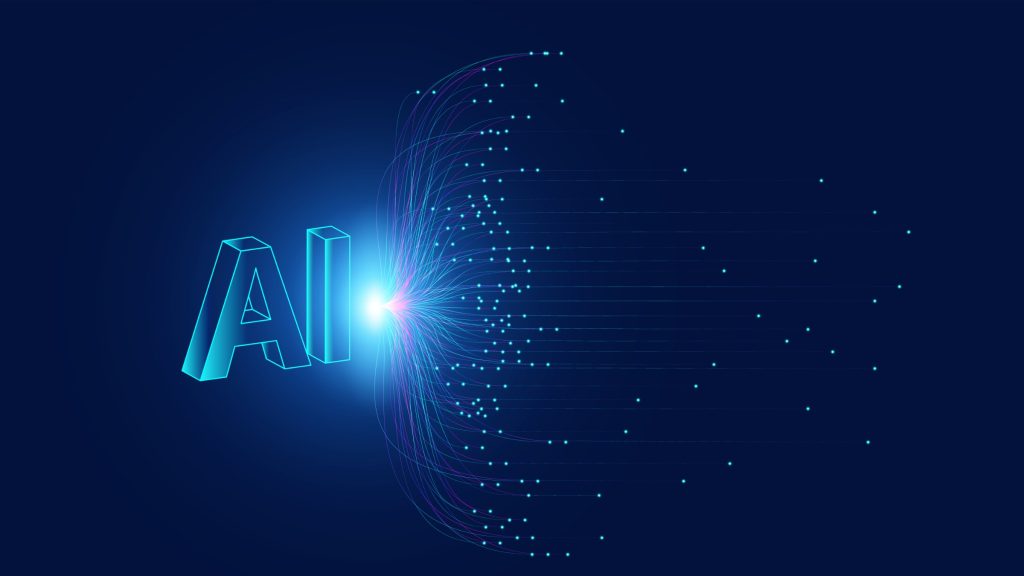
Today’s Big Tech giants are demonstrating fierce resilience against AI disruption, accounting for over 70% of the top 20’s market value, but aggressive new players like OpenAI and Anthropic are competing at every layer of the AI stack, according to Bain and Company’s 2025 Technology Report.
Incumbents like Microsoft and Nvidia are pumping investments into AI infrastructure and models to remain in the lead, meanwhile, uncertainties from agentic AI, quantum computing, and US-China decoupling are increasing the pressure, adding more volatility to the AI market.
The rate of adoption of disruptive AI is creating the transformative impact of cloud computing.
According to Bain’s Report, it is advisable for these incumbents to continue self-disrupting and acquiring new capabilities. That said, the report also warned startups of the colossal scale and investments required to properly challenge hyperscalers.
With AI disrupting industries, and particularly generative and agentic models, spreading faster and wider than previous innovations, a new group of challengers is emerging to question whether today’s tech leaders can still maintain their long-standing lead.
AI Shifting Markets and Leaders
The incumbents continue to tighten their grip on any disruptive AI technology, and the combined total worth of the top 20 tech firms is more than 70%, while Nvidia’s market capitalization has increased more than 800% since January 2023.
Big Tech firms such as Microsoft, Amazon, Alphabet, Apple, and Meta hold values exceeding $2 trillion.
It’s no secret that AI and automation will disrupt our world and the contributors of such disruptions are currently investing in AI infrastructure, models, and applications to maintain their dominance, and to ensure absorption of any disruptive rising startup.
Yet, new entrants are reshaping the competitive field, one of the those being OpenAI, who’s still privately-owned, valued at about $300 billion. OpenAI’s current valuation puts it on par with the top 15 public companies.
In January of this year, OpenAI’s competitor, Anthropic’s valuation soared to $60 billion, while companies like Glean, Anysphere, Mistral, and Figure hold valuations between $5 billion and nearly $40 billion.
According to CB Insights, 2024 saw about 20 times more unicorns compared to 2014, highlighting the explosive growth of AI disruption tech companies.
Competition is no longer limited to applications. Startups like Coreweave are offering GPU-as-a-service infrastructure at lower latency and cost, while Nvidia is building specialized AI factories. In the models’ space, firms such as OpenAI, Anthropic, and Mistral are proving that innovation is not the exclusive domain of Big Tech.
At the starting layer, Anysphere’s AI powered code editor, Cursor valued at $9 billion shows how quick players can win against larger rivals by being best in class.
Emerging opportunities extend to devices, search, and browsers. AI enabled smartphones, chatbots like ChatGPT and Claude, and AI driven browsers from OpenAI and Perplexity hint at potential AI as a disruptive technology in the markets.
“Each of these control points provides the incumbents with a wealth of data to improve their offerings, and they may need to self-disrupt as AI changes the playing field,” Bain’s Report highlighted.
AI Disruption
How AI Will Disrupt the Entire World
The rise of agentic AI, capable of performing complex workflows and making autonomous decisions, threatens to upend traditional software models. Enterprise Software as a Service( SaaS) providers may find themselves disrupted by competitors embedding these systems into end-to-end solutions.
US-China tensions are fracturing semiconductor and AI hardware supply chains, prompting both nations to accelerate domestic alternatives and invest in sovereign AI capabilities.
When will rules and regulations be set in motion to bring this to a halt? Governments worldwide are intensifying scrutiny on data privacy and AI safety while pursuing national AI champions to reduce reliance on US based firms.
And standing in the wings is quantum computing, which has the potential to make current encryption obsolete and revolutionize industries from materials science to information security, eliminating the possibility of quantum computing being one of the industries AI will disrupt.
For incumbents, the message is clear, keep AI disruptive effects, innovate, and recruit talent while expanding investments in infrastructure, models, and applications. Legacy firms will get by on cost cutting, collaboration, and being willing to reinvent due to the AI disruption. Startups will have to walk the tightrope between bold innovation, and the huge capital and talent demands of keeping up with hyperscale’s.
The tech market disruption AI isn’t purely in the technology sector. Its ripple effect will boom across sectors, where early movers will gain a commanding lead in an era of relentless reinvention.
Inside Telecom provides you with an extensive list of content covering all aspects of the tech industry. Keep an eye on our Intelligent Tech sections to stay informed and up-to-date with our daily articles.